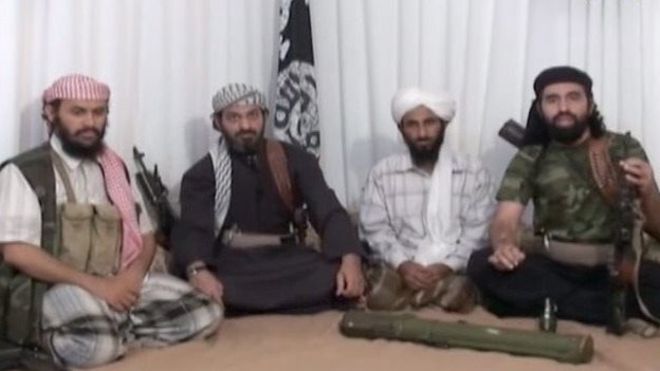The U.S. military executed a series of manned and unmanned aerial attacks against Al-Qaeda in the Arabian Peninsula (AQAP) targets inside Yemen yesterday, according to the Washington Post.
Yemeni sources also reported the presence of U.S. ground forces conducting raids in conjunction with the air attacks, although that was refuted by the Pentagon.
The attacks occurred in Abyan, Al Bayda, and Shabwah, three Yemeni governorates in Yemen’s south central region long known for AQAP activities.
While Pentagon Spokesman Captain Jeff Davis said that U.S. Special Operations Forces are on the ground in Yemen in an advisory capacity, he insisted they were not involved in the attacks conducted overnight. “The strikes will degrade the AQAP’s ability to coordinate external terror attacks and limit their ability to use territory seized from the legitimate government of Yemen as a safe space for terror plotting,” he said.
Yemeni sources insist that U.S. Special Operations Forces were on the ground in at least one area, citing the footprints of soldiers and dogs, and other military gear left in the area. There was reportedly no gunfire, but the soldiers were thought to be American because they came from battleships off the coast of Yemen.
The attacks come one month after a SEAL Team 6 raid inside Yemen set off a media firestorm of controversy, with many critics questioning the purpose of the raid, the method in which it was conducted, the intelligence used to plan the operation, and the intelligence garnered from site exploitation for use in follow on operations.
President Trump continues to face daily criticism for his approval of the January 29th raid, during which Navy SEAL Ryan Owens was killed in action.
AQAP has been described as the most dangerous Al-Qaeda subsidiary, gaining notoriety after the failed ‘underwear bomb’ operation on Christmas Day 2009. It has exploited the security vacuum which has emerged as a result of the ongoing Yemen Civil War to expand its ability to train and operate.
Civilians in Yemen have reported multiple missile strikes within known AQAP areas, with Yemeni officials saying multiple AQAP militants were killed as a result. The Pentagon has not commented on battle damage from the strikes.
Image courtesy of the BBC
Already have an account? Sign In
Two ways to continue to read this article.
Subscribe
$1.99
every 4 weeks
- Unlimited access to all articles
- Support independent journalism
- Ad-free reading experience
Subscribe Now
Recurring Monthly. Cancel Anytime.











COMMENTS